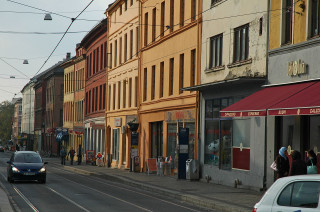PhD Fellowship – Urbanism and urban theory

The Oslo School of Architecture and Design calls for applications to a full-time position as a Ph.D. research fellow in the field of urban theory.
At the Institute of urbanism and landscape, urban theory is specifically taught in the Master program’s elective courses. More specific issues of urban theory are also included in the institute’s foundation level courses, and in a selection of master studios. When it comes to research, urban theory both constitutes a research topic in itself, i.e. social science and humanities based urban studies of both empirical and more theoretical kinds, as well as gives important input to multi-disciplinary urban research projects. In recent years researchers at the institute have carried out multi-disciplinary research on issues such as urban transformation, gentrification and the network city in which urban theory has had invaluable imprint.
This specific call is dedicated to a set of more concrete topics within today’s field of urbanism and urban theory:
”Urban life” – ideals and realities in contemporary urban development
Urban learning / comparative urbanism
Affective urbanism – theory and practice
The call asks for more specific project descriptions related to one of the topics here listed. The call furthermore asks for projects that combine strains of urban theory with in-depth empirical exploration.
”Urban life” – ideals and realities in contemporary urban development is a topic that focuses on the widespread ambition within contemporary urban development projects, from planners, politicians and developers alike, to create environments for rich and exiting urban life. We ask for critical examination of how practitioners go about to reach such aims as well as for critical assessment of to what extent one has succeeded.
By the term urban learning, and the associated notion of comparative urbanism, we especially refer to the city as an environment for learning, both from the outside world (learning from other cities) and in and of itself, for instance in terms of building knowledge cultures and reflexivity about the city’s own specifics, constraints and advantages. We especially ask for critical examination of how various forms urban knowledge (models, strategies, best practices) “travel” globally and are sought made applicable in local settings.
Affective urbanism is understood both as an analytical perspective and as a mode of engagement with urban cultures. We especially ask for critical examination, in terms of more concrete readings and analysis, of practices and initiatives within urban politics, planning and design that seek to engage with and mobilize affective forces and qualities (through for instance temporary projects, festivals and events in specific urban settings).



